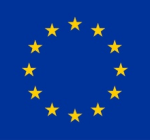Academic Challenge
Degrees are broken into modules; modules into courses; courses into short segments. MOOCs ahve shown that six minutes are the exact right lenght for online video and four weeks for a course. Universities are responding to this trend by becoming more modular.
Industry Needs
The private sector is proposing solutions to recognise learning in smaller segments, from nanodegrees, to centralised skill-banks verified by standardised testing to online systems of recommendation similar to those to peer-reviewed literature.
The MicroHE solution
The specific objective of the project is to examine the scope for and impact of micro-credentials – a form of short-cycle tertiary qualification – in European Higher Education.
MicroHE is explicitly designed to match several of the priorities of the EU strategy on higher Education:
- It will encourage a greater variety of study modes as well as exploit the potential of ICTs to enable more effective and personalized learning experiences by supporting the expansion of micro-credentials, i.e. of
higher education provided digitally in units of fewer than ECTS - It will help to ensure the efficient recognition of credits gained abroad through effective quality assurance, comparable and consistent use of ECTS and the Diploma Supplement, and by linking qualifications to the European Qualifications Framework, by piloting tools (such as a module supplement and a recognition clearinghouse) to allow these instruments to be used to assess, certify and recognize micro-credentials.
By ensuring that micro-credentials are certified and mapped to qualifications frameworks, the project will also ensure that clear progression pathways are developed from this form of education into other forms of Higher Education.
 The MicroHE project has received funding from the European Union’s Erasmus+ programme.
The MicroHE project has received funding from the European Union’s Erasmus+ programme.
The project aims to provide the most comprehensive policy analysis of the impact of modularisation, unbundling and micro-credentialing on Higher Education in Europe yet conducted, and will address the challenges described above by:
- Gathering the state of the art in micro-credentialing in European Higher Education today, by organizing the first European survey on micro-credentials in HE, surveying at least 70 institutions across the continent, with
the aim of understanding the current level of provision, the types of micro-credentials offered and future trends in provision of micro-credentials - Forecasting the impacts of continued modularisation of Higher Education on HEIs by using forwardscanning techniques, specifically through the use of DELPHI methodology
- Examining the adequacy of European recognition instruments for micro-credentials in particular ECTS, the diploma supplement and qualification frameworks
- Proposing a ‘credit supplement’ to give detailed information about micro-credentials in a way compatible with ECTS, the diploma supplement and qualification frameworks
- Proposing a meta-data standard and developing an online clearinghouse to facilitate recognition, transfer and portability of micro-credentials in Europe
Through these activities, the project intends to:
- Promote increased choice for students and lifelong learners by increasing the range of educational opportunities offered to them;
- Equip universities (esp. public universities) to adequately adapt to the changes brought about modularisation of education;
- Improve the recognition and transfer of learning between different educational organizations as well as the world of work, including transnationally;
- While maintaining the European tradition of high quality education and high-levels of student-protection, provided through systems of accreditation and quality assurance.
- WP 1 – Analysing and Modelling Micro-Credentials in Europe
- WP 2 – Scenario Building for Micro-Credentials in Europe
- WP 3 – Creating a Recognition-Framework for Micro-Credentials
- WP 4 – Facilitating Portability of Micro-Credentials
- WP 5 – Quality Assurance
- WP 6 – Marketing and Message Management
- WP 7 – Management
- Cooperative State University Baden-Wuerttemberg, Germany
- European Distance and E-Learning Network, United Kingdom
- Vytauto Didžiojo universitetas, Lithuania
- Institut “Jožef Stefan”, Slovenia
- TTY-säätiö sr (TTY Foundation sr), Finland
- Knowledge Innovation Centre (Malta) Ltd., Malta
- Fondazione Politecnico di Milano, Italy
- Knowledge 4 All Foundation Ltd., United Kingdom








